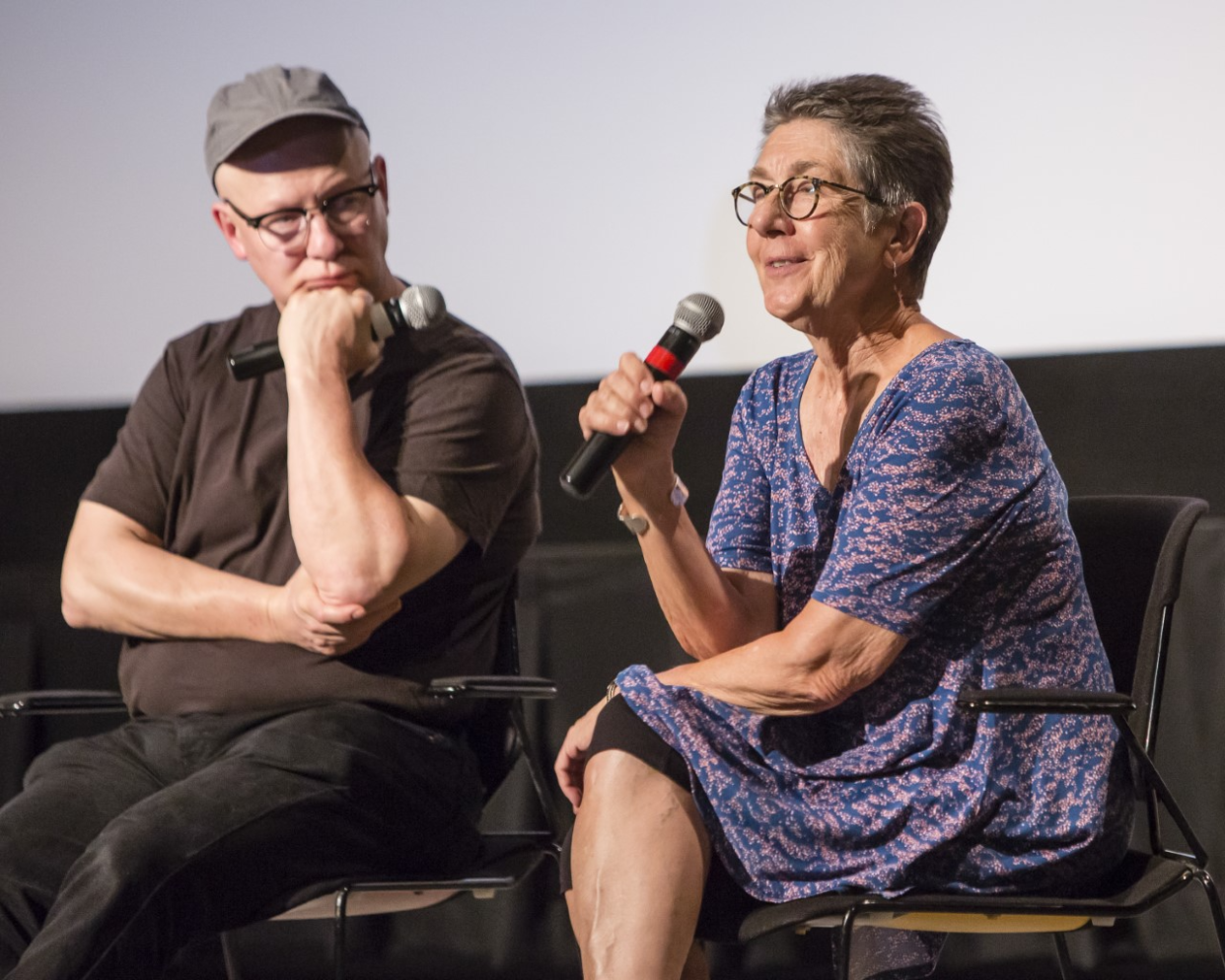A 'true humanitarian for this state.' Central Ohioans honor late filmmaker Julia Reichert.

- Oops!Something went wrong.Please try again later.
- Oops!Something went wrong.Please try again later.
- Oops!Something went wrong.Please try again later.
The late filmmaker Julia Reichert is being remembered as many things: a trailblazing documentarian, a chronicler of the labor movement and women’s rights, an Oscar-winner for her 2019 film “American Factory” — and as a central Ohioan.
Reichert — who died of urothelial cancer on Dec. 1 at age 76 — was born in Bordentown Township, New Jersey, in 1946, but, as a graduate of Antioch College in Yellow Springs and a longtime resident of the village, spent the bulk of her life in Ohio.
With her second husband, fellow filmmaker Steven Bognar, Reichert made numerous documentaries focused on ordinary Ohioans, including “A Lion in the House” (2006), about families in Ohio grappling with diagnoses of childhood cancer; “The Last Truck: Closing of a GM Plant” (2009), about the shuttering of a car factory in Moraine; and “American Factory," about a Chinese company’s acquisition of that car factory.
More:Oscar winner Julia Reichert cheers Ohio, and vice versa
Reichert, who made her home in Yellow Springs, also taught filmmaking for close to three decades at Wright State University in Dayton.
Members of the central Ohio filmmaking community describe Reichert as a force to be reckoned with.
The Wexner Center for the Arts fostered a long relationship with Reichert: The arts center on the campus of Ohio State University began showing her films in 1992 and organized a career-spanning retrospective of her work in 2019 that debuted at the Museum of Modern Art in New York.
“(Reichert and Bognar) were part of our program and our film family,” said Wexner Center film/video director David Filipi. “We showed their films, obviously, at the center over the years, and they brought their students often. We’d have a filmmaker coming in, or a certain film would be screened, and ... two or three carloads of students would come in.”
One such student was Paul Hill, now a video editor at the Wexner Center film/video studio.
“She was instrumental in me wanting to be a filmmaker,” said Hill, who studied documentary filmmaking with Reichert while he was a student at Wright State. “She always gave lots and lots of time for me to work out ideas and just talk about art and life. She was a good friend, not just professionally but personally, too.”
Hill is not alone among those who credit Reichert with helping their careers.
“I was trying to think about this the other day — how many students that she must have had,” Hill said. “It must have been in the hundreds.”
Film:Upper Arlington native Beverly D'Angelo on enduring popularity of 'Christmas Vacation'
Her legacy, then, is not just as a filmmaker but also a mentor.
“She showed people how to navigate things: how to fundraise, how to find distribution,” Filipi said. “That’s just as important if you’re going to be an independent filmmaker — how to get people to see your film.”
Although Reichert’s own career stretches back to the early 1970s — her early films include “Growing Up Female” (1971), about societal expectations placed on young women; and “Seeing Red: Stories of American Communists” (1983), both co-directed with her first husband, James Klein — her visibility increased in recent years.
“One thing that gives me a lot of happiness just about her career is that the retrospective and ‘American Factory’ kind of happened so close together, and that she won the Academy Award after having been nominated a couple of times,” Filipi said. “Her work got the full attention it deserved at just the right time.”
Reichert remained active after winning the Oscar, co-directing with Bognar several new films, including a 2021 documentary about Dave Chappelle.
Even after those years of success, though, Reichert and Bognar remained embedded in their community.
“What it says is ... how much they actually cared about the people of the state, how much they cared about their neighbors, how much they cared about the people that were suffering (and) losing their jobs,” said Drexel Theatre director Jeremy Henthorn, who first encountered Reichert when he ran the Ohio Film Office over a decade ago. “They were true humanitarians for this state.”
New York filmmaker Sam Green, a longtime friend and admirer of Reichert, visited the filmmaker about a month ago when he was in Columbus for a screening at the Wexner Center.
“It was clear that the end was near, even though that had been the case a number of times in the past. Julia fought harder than anyone I've ever known,” Green said by email.
“Julia loved people, and that came out in her work and in the way she lived her life. ... We are heartbroken to lose (her), but her fierce and loving spirit lives on in her work and in the memories of her that we all carry in our hearts.”
tonguetteauthor2@aol.com
This article originally appeared on The Columbus Dispatch: Wexner Center and Drexel Theatre leaders pay tribute to Julia Reichert

